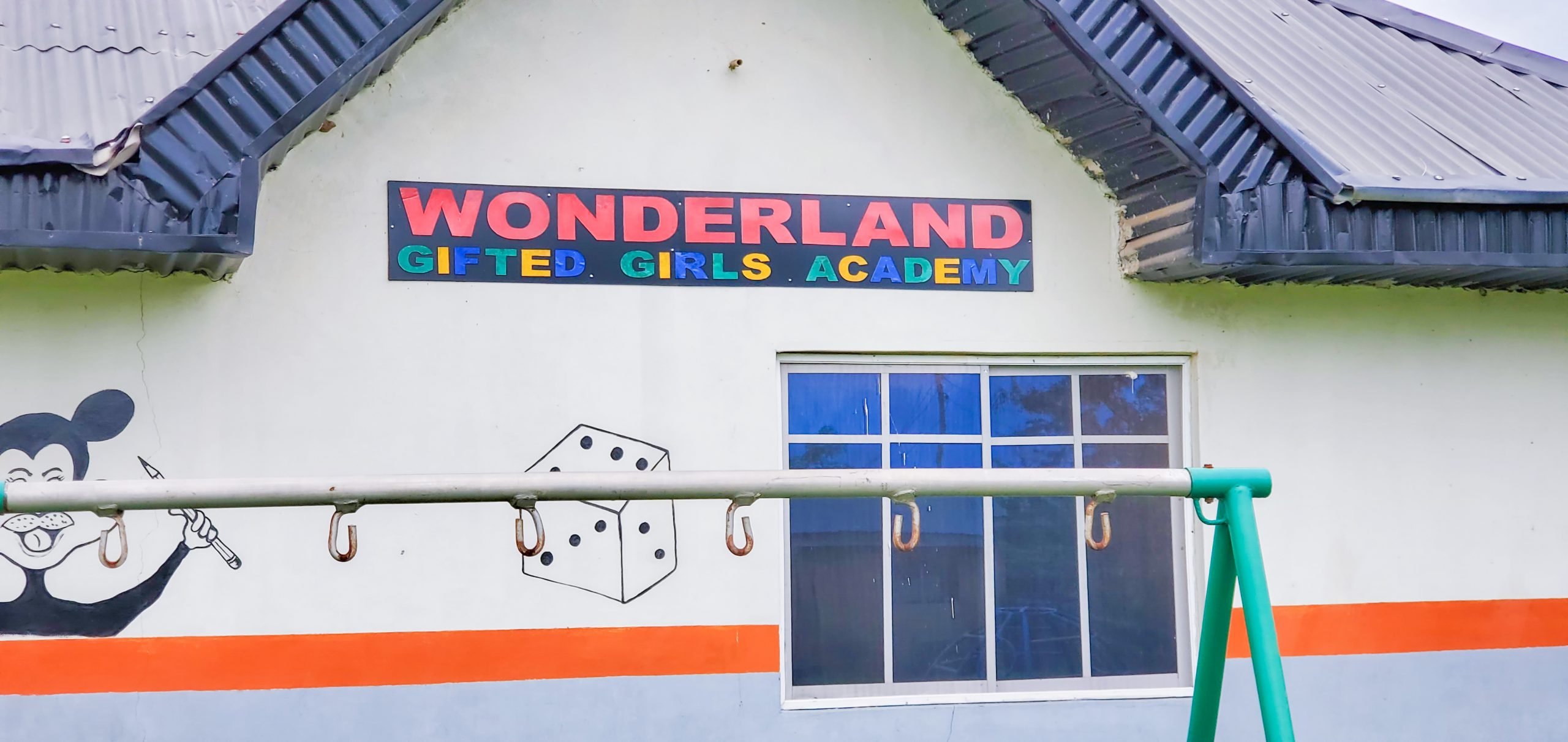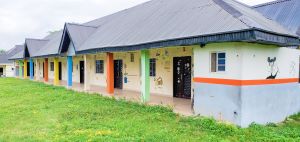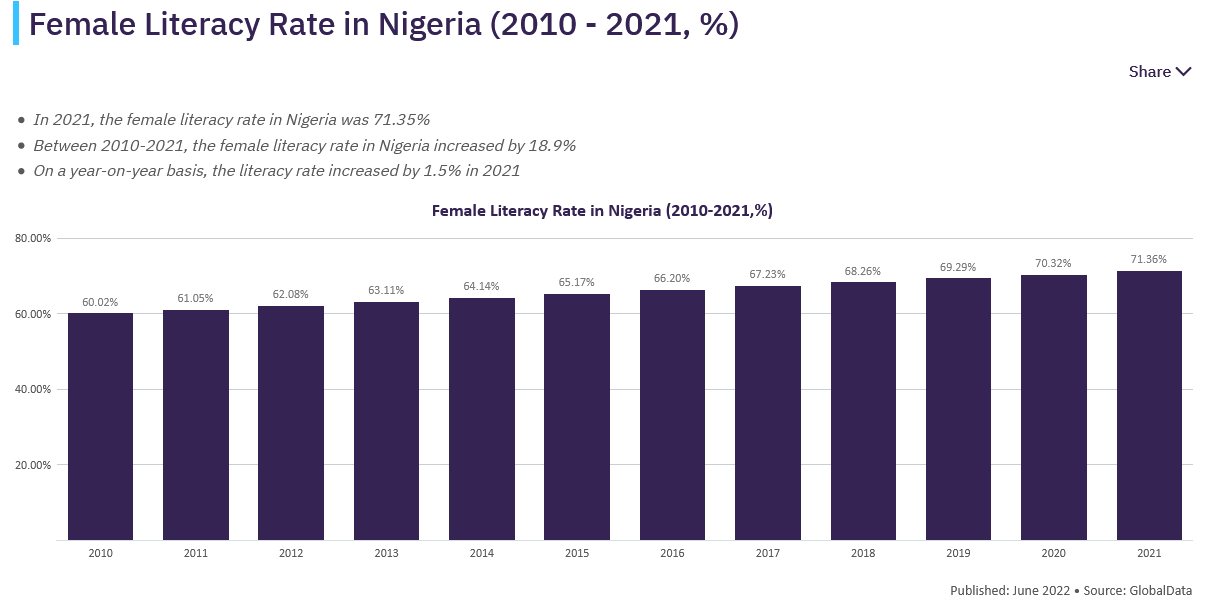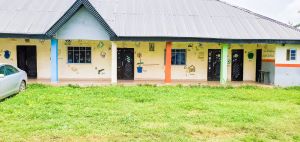Gender discrimination, cultural misunderstanding, and poverty are among the issues affecting the education of girls in the Iroko community area of Oyo State. There is this negative conventional belief that female and male children should not be treated equally. Women who pursue education are more likely to have a lifelong desire to learn new things, including values, attitudes, competence, and abilities.
Many girls’ access to school has been hampered by culturally misconceived notions. Such beliefs include the notion that she would be confined to domestic chores; she is thought to be only fit for the kitchen and the house, and thus she is not educated because that is her function.
As a result of this orientation, many women are unable to reach their full potential. Another significant obstacle to girls’ education is the low level of education in many parts of the country. One of the justifications is that if they were educated, girl children would eventually get married and the education wouldn’t be useful.
At Iroko Community, Akinyele Area in Ibadan, South West Nigeria, not less than 50 girls currently have access to free education due to a free child educational intervention organized and funded by a single individual. Even though the students are not allowed to pay tuition, they also receive free uniforms, writing materials, and food sometimes.
Some of the students who enrolled for the 2019–2020 school year received complimentary backpacks, water bottles, and school sandals. Consequently, parents of the beneficiaries find it easier to cope since they are no longer under pressure to pay school fees while their children access education alongside their peers in the urban community.
To increase the community’s access to education for girls, Mrs. Seyi Bakare, Founder and Senior Pastor, of Gboromiro Prayer Ministry, set up a school in 2019. The school, Wonderland Gifted Girls Academy, opened its doors to students on September 10, 2019.

Even though it was floated by a Christian organization, the program accepted students of other faiths. The school is made up of six classrooms and two restrooms for both teachers and students. It has pre-primary classes as well as primary classes, which go from one to six.
One of the parents of the benefitting student – Ishola Darasimi, who was the youngest among those who enrolled in the 2019/2020 academic session from the Onidundun Area said the initiative had transformed the life of the child as she was gradually catching up with her counterparts in other private schools in the community.
The daughter, she said, could now interact with her colleagues in English, an action she claimed was practically impossible before the enrollment.
Mrs. Fisayo Abodunrin said she was glad the initiative came at a time when they were looking for a better school for Olamide Abodunrin, who was the first to be registered at the school.
“The initiative has helped to build a solid foundation for her future because the teachers are more professional and know what to do,” said Mrs. Abodunrin.
Also sharing their testimonies, the parents of Taiwo and Kehinde Oluwasegun said the initiative had served as a way to improve the lifestyle of the girl children in the community. They explained that the initiative was preparing them for the future so that they could compete with their counterparts from other parts of the country through this building of a strong foundation.
How the school is founded and its impact on the community
The founder, Pastor Seyi Bakare, said she got the idea to establish a school for girls only to provide them with a high-quality education and prepare them to compete with other genders in the global marketplace. This, she said, was feasible since she attended Queens College in Ibadan, a school exclusively for girls, with an awareness of the value of education in a girl’s life.
The goal of the school, according to her, is to offer young girls a purpose in life by helping them to lay a solid foundation upon which they can build in the future.
“Within a short time since the project started, it has received encomiums and testimonies from parents whose children’s lives have witnessed significant changes. These children now speak good English, manage household duties, and improve communication skills in the neighborhood.
“The good ideals that define their mission in life were taught to them by us. These are the main distinctions between kids in our program and kids who are not. If you educate a boy, you educate one person, but if you educate a girl, you educate a family and nation. An empowered woman is full of great potential, strength, courage, and knowledge, which she passes down to society.

“You neglect a nation when you disregard a child because she has the ability to sway others. If you give her the correct resources, she will produce a lot of fruit that is good and will last for many generations,” Mrs. Bakare reasoned.
The proprietress noted that people had varying opinions on how to educate a child, with some believing that because a child would grow up to marry, her education ends up, as such, at home. Their elementary education, she said, is heavily influenced by these conventional beliefs, frequently leading to early marriages among young Nigerian girls.
The Minister of Education, Adamu Adamu, claimed Nigeria had a high rate of illiteracy during one of the annual education conferences. The ministry argued that Nigeria must concentrate heavily on the education of girls and women by waging a comprehensive statewide campaign against illiteracy to win the illiteracy war. In 2021, the female literacy rate in Nigeria was 71.35%. Between 2010 and 2021, the female literacy rate in Nigeria increased by 18.9%.

The Significance of Girl Child Education
Educating girls gives knowledge, chases away superstition and incorrect beliefs, and generally enhances family life. The belief that girls are expected to settle for less and do not deserve to speak when men are talking is primitive and obsolete. Women play a crucial role in maintaining peace and stability in society, so educating them can have a significant impact.
“The benefits of education for women and girls are numerous. As girls mature and become women, they study more and become more active in society and leadership. Due to increased information and access, they also feel better about themselves.
If girls or women make money, they often invest 90 percent of it back into the family to better the family’s living conditions and health status; educated females know what is best for their families and society.

From infancy until adulthood, a mother should be noted as the primary educator of her children, because moms are the key role models for children. An illiterate mother will raise an uneducated child who will eventually become a member of society.
“Education for girls is a strategic area of development importance. If they decide to have children, women with greater levels of education tend to be healthier, participate more in the formal labor market, make more money, have fewer children, marry later in life, and provide better health care and education for their offspring.
Combining all these elements can aid in eradicating poverty from households, communities, and even countries, “buttressed the project initiator.”
International Human Rights in Free Education
International human rights legislation mandates that basic education be both required and free. It is fundamental to ensuring that everyone has access to free basic education. However, in many developing nations, including Nigeria, families frequently lack the funds to send their kids to school, depriving millions of school-age children of their right to an education.
This happens even though Nigeria is a signatory to numerous international legal frameworks that protect education, as well as the Universal Basic Education (UBE) Act (2004) that provides for free and compulsory basic education for children in Nigeria. Besides school levies, there are frequently hidden costs involved with schoolings, such as uniforms, books, and transportation. This, apparently, keeps kids from low-income families from attending school.
When a state ratifies the International Covenant on Economic, Social, and Cultural Rights (ICESCR, 1966), it is still required to develop and adopt a detailed implementation plan for the Covenant’s progressive implementation over a reasonable period of time, specified in the plan, within two years. This is true even if the state cannot guarantee free, compulsory primary education (ICESCR, Article 14).
According to General Comment 13 of the Committee on Economic, Social, and Cultural Rights, 1999: Para. 14, the phrase “progressive introduction of free education” refers to the requirement for states to prioritize the provision of free elementary education while also taking proactive measures to achieve free secondary and higher education.
Wonderland Cannot solve it all
Despite the initiative bridging the education gap for girls in the Iroko community, the non-availability of a free girls-only secondary school in the community could limit the girls’ transition to secondary schools after their primary education at Wonderland.
After graduation from primary schools, students could face similar cultural barriers that prevented them from enrolling in primary schools, as well as financial constraints to proceed to secondary schools.
The founder of the school also affirmed that the initiative is constrained by the inability to set up a senior secondary school education.
Also, parents whose financial capacity prevented them from enrolling their children in schools are unable to purchase learning materials and aids to improve the learning outcomes of their children.
Also of concern is the access to qualified teachers to impart knowledge to the students due to the school’s location.
This story has been made possible by Nigeria Health Watch with support from the Solutions Journalism Network, a nonprofit organization dedicated to rigorous and compelling reporting about responses to social problems.

